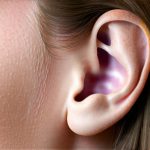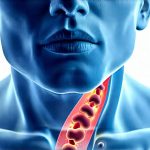Gastroesophageal reflux disease (GERD) is a surprisingly common condition affecting millions worldwide, often characterized by heartburn, regurgitation, and difficulty swallowing. While these are the hallmark symptoms most people associate with GERD, its manifestations can be far more diverse and subtle, sometimes appearing in seemingly unrelated areas of the body. This complexity makes diagnosis challenging, as individuals may not immediately connect their symptoms to digestive issues. Many struggle silently with atypical presentations, leading to frustration and delayed treatment. Understanding the broader range of potential symptoms is crucial for recognizing GERD and seeking appropriate care.
The connection between a digestive disorder and seemingly unrelated symptoms like itchy ears after meals might appear perplexing, but it’s rooted in the body’s interconnected systems. The vagus nerve, a critical component of the nervous system, plays a significant role here. This long cranial nerve extends from the brainstem to the abdomen, influencing various functions including digestion, heart rate, and even ear function. Reflux can stimulate the vagus nerve, creating a pathway for these unusual symptoms to emerge. Furthermore, inflammation caused by chronic acid exposure can trigger systemic responses that affect distant parts of the body, making seemingly unrelated issues more likely. It’s important to remember that every individual experiences GERD differently, and symptom presentation varies widely. You might also find helpful information on dinner meals tailored for those with both GERD and IBS.
The Vagus Nerve and Referred Sensations
The vagus nerve is often described as a “wandering” nerve due to its extensive reach throughout the body. It’s responsible for a huge range of autonomic functions, including controlling gut motility, regulating heart rate variability, and even influencing immune responses. When stomach acid frequently backflows into the esophagus – as occurs in GERD – it can irritate the vagus nerve endings present within the esophageal lining. This irritation doesn’t necessarily stay localized; instead, signals travel along the nerve to the brain, which may interpret them as originating from other areas of the body, leading to referred sensations.
These referred sensations are why individuals with GERD sometimes experience chest pain that mimics a heart attack or jaw discomfort. Similarly, vagal stimulation caused by acid reflux can trigger itching in the ears, even though there’s no direct problem within the ear itself. The brain struggles to pinpoint the exact source of the signal, leading to misinterpretation. This explains why some people report intense itching specifically after eating certain foods – those that are more likely to trigger their GERD symptoms and consequently stimulate the vagus nerve. The connection isn’t about food directly causing ear itch; it’s about food triggering reflux which then stimulates the nerve. If you experience discomfort after meals, learning how to soothe your gut can be beneficial.
It’s vital to understand this mechanism because traditional diagnostic approaches for ear itching (like looking for earwax buildup or infection) won’t address the underlying GERD contributing to the problem. A comprehensive evaluation considering digestive health is crucial in these cases. Identifying and managing GERD can often alleviate the seemingly unrelated ear symptoms, offering significant relief.
Atypical GERD Symptoms & Systemic Inflammation
GERD isn’t always about typical heartburn. In fact, a substantial percentage of people with GERD experience atypical or “silent” reflux – where they have minimal to no classic symptoms. This makes diagnosis more difficult, as the condition can go unnoticed for extended periods, leading to long-term complications. Beyond ear itching and referred pain, these atypical symptoms can include:
- Chronic cough
- Hoarseness
- Asthma-like symptoms
- Difficulty sleeping (especially at night)
- A feeling of a lump in the throat (globus sensation)
- Dental erosion
Chronic acid exposure from GERD leads to low-level inflammation throughout the digestive tract and beyond. This systemic inflammation isn’t just confined to the esophagus; it can contribute to various health problems, influencing everything from immune function to neurological symptoms. The body’s constant attempt to fight off this chronic irritation can lead to heightened sensitivity in different areas, potentially exacerbating conditions like tinnitus (ringing in the ears) or triggering unexplained itching sensations.
Furthermore, inflammation impacts nutrient absorption. If GERD is left unmanaged, it can interfere with the body’s ability to absorb essential vitamins and minerals, which further weakens immune function and overall health. Addressing GERD isn’t just about relieving immediate symptoms; it’s about preventing long-term complications associated with chronic inflammation and malabsorption. Consider balanced meals to support overall health during treatment.
Identifying Potential Triggers
Pinpointing specific food triggers is a cornerstone of managing GERD, and can help understand the link to ear itching. While trigger foods vary significantly between individuals, some common culprits include:
- Fatty Foods: These slow down digestion and increase stomach pressure, making reflux more likely.
- Spicy Foods: Capsaicin, the compound responsible for the heat in spicy foods, can relax the lower esophageal sphincter (LES), allowing acid to flow back up.
- Acidic Foods & Beverages: Citrus fruits, tomatoes, coffee, and carbonated drinks can irritate the esophagus directly.
Keeping a detailed food diary is an excellent starting point. Record everything you eat and drink, along with any symptoms experienced afterward – including ear itching. Look for patterns to identify potential triggers. Elimination diets – temporarily removing suspected trigger foods from your diet and then reintroducing them one at a time – can further refine the process. It’s important to do this under guidance of a healthcare professional or registered dietitian to ensure adequate nutrition. Don’t self-diagnose; use these techniques as part of a broader investigation. Understanding why some kids experience bloating can help you identify triggers for yourself too.
Lifestyle Modifications for GERD Management
Lifestyle changes are often the first line of defense against GERD, and can significantly reduce symptoms – including ear itching. These modifications aim to minimize acid production, improve digestion, and prevent reflux:
- Elevate the head of your bed by 6-8 inches: This uses gravity to help keep stomach acid down overnight.
- Avoid eating large meals, especially before bedtime: Smaller, more frequent meals are easier for the digestive system to handle.
- Lose weight if you’re overweight or obese: Excess weight increases abdominal pressure, pushing stomach contents upwards.
- Quit smoking: Smoking weakens the LES and irritates the esophagus.
- Limit alcohol consumption: Alcohol can also relax the LES.
These changes are not always easy to implement but represent a proactive step towards better digestive health. Consistency is key; making these modifications a regular part of your lifestyle will yield the most significant benefits. If you’ve recently had surgery, understanding digestive issues post-operation is also crucial.
When to Seek Medical Attention
While lifestyle adjustments and dietary changes can often provide relief, it’s crucial to seek medical attention if symptoms are severe or persistent. Don’t ignore chronic ear itching, especially if it consistently follows meals. A healthcare professional can accurately diagnose GERD through various tests:
- Endoscopy: This procedure involves inserting a thin, flexible tube with a camera into the esophagus to visualize any damage.
- Esophageal pH monitoring: Measures the amount of acid refluxing into the esophagus over a 24-hour period.
- Esophageal manometry: Assesses the function of the LES and esophageal muscles.
If GERD is confirmed, your doctor may recommend medication – such as proton pump inhibitors (PPIs) or H2 receptor antagonists – to reduce stomach acid production. These medications should be used under medical supervision due to potential side effects. Remember that self-treating can mask underlying issues and delay proper diagnosis and treatment. Addressing the root cause—GERD—is essential for long-term relief, including resolving the puzzling symptom of itchy ears after meals. It’s also important to remember how to cope with fatigue that can sometimes accompany treatment plans. Finally, don’t hesitate to consider employment navigation if your condition impacts work life.


















